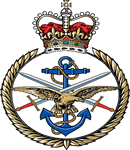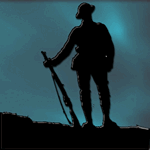Commemorated: | |||
| 1. Book: | Beyond The Five Points | Pgs 212-214 | |
Awards & Titles: | Victoria Cross | ||
Early Life :
Lieutenant Colonel Sir John Reginald Noble Graham, 3rd Baronet, VC, OBE (17 September 1892 – 6 December 1980) was a British businessman, army officer and a recipient of the Victoria Cross, the highest award for gallantry in the face of the enemy that can be awarded to British and Commonwealth forces. He received the award "for most conspicuous bravery, coolness and resource when in command of a Machine Gun Section" during the Samarra offensive in 1917, during the First World WarFamily :
Graham was born at Calcutta, India, on 17 September 1892, the eldest son of Sir Frederick Graham, 2nd Baronet. He was educated at Eton College and Trinity College, Cambridge.Service Life:
Campaigns:
- The First World War 1914-1918, World-wide.
| Unit / Ship / Est.: |
| Action : Post War - Old Age |
Did not die in the war. Died of Natural causes through Old Age.
Lt. Graham accompanied his guns across open ground, under very heavy rifle and machine gun fire, and when his men became casualties, he assisted in carrying the ammunition.
Although twice wounded he continued during the advance to control his guns and was able, with one gun, to open an accurate fire on the enemy, who were massing for a counter-attack. This gun was put out of action by the enemy's rifle fire, and he was again wounded. The advancing enemy forced him to retire, but before doing so he further disabled his gun, rendering it useless.
He then brought a Lewis gun into action with excellent effect till all the ammunition was expended. He was again severely wounded, and forced through loss of blood to retire.
His valour and skilful handling of his guns held up a strong counter-attack which threatened to roll up the left flank of the Brigade, and thus averted what might have been a very critical situation.
After recovering from his severe wounds Captain Graham, as he had become, was ordered back to Mesopotamia where he continued to serve until January 1918, when his company was transferred to Palestine where he was given command of the unit with the rank of major.
After the war, Graham returned to Scotland to a hero's welcome at his home village of Cardross.
During the Second World War, he was given a temporary rank of lieutenant colonel and served in Scottish Command. He was appointed an Officer of the Order of the British Empire in the 1946 New Year Honours, and awarded King Haakon VII's Cross of Liberty in 1949.
Masonic :
| Type | Lodge Name and No. | Province/District : |
|---|---|---|
| Mother : | No. |
Initiated | Passed | Raised |
30th November -0001 | 30th November -0001 | 30th November -0001 |
Source :
The project globally acknowledges the following as sources of information for research across the whole database:
- The Commonwealth War Graves Commission
- The (UK) National Archives
- Ancestry.co.uk - Genealogy, Family Trees & Family History online
- ugle.org.uk - The records of the United Grand Lodge of England including the Library and Museum of Freemasonry
Additional Source:
- Founder Researchers : Paul Masters & Mike McCarthy
- Researcher : Bruce Littley
Last Updated: 2022-01-24 17:19:56

